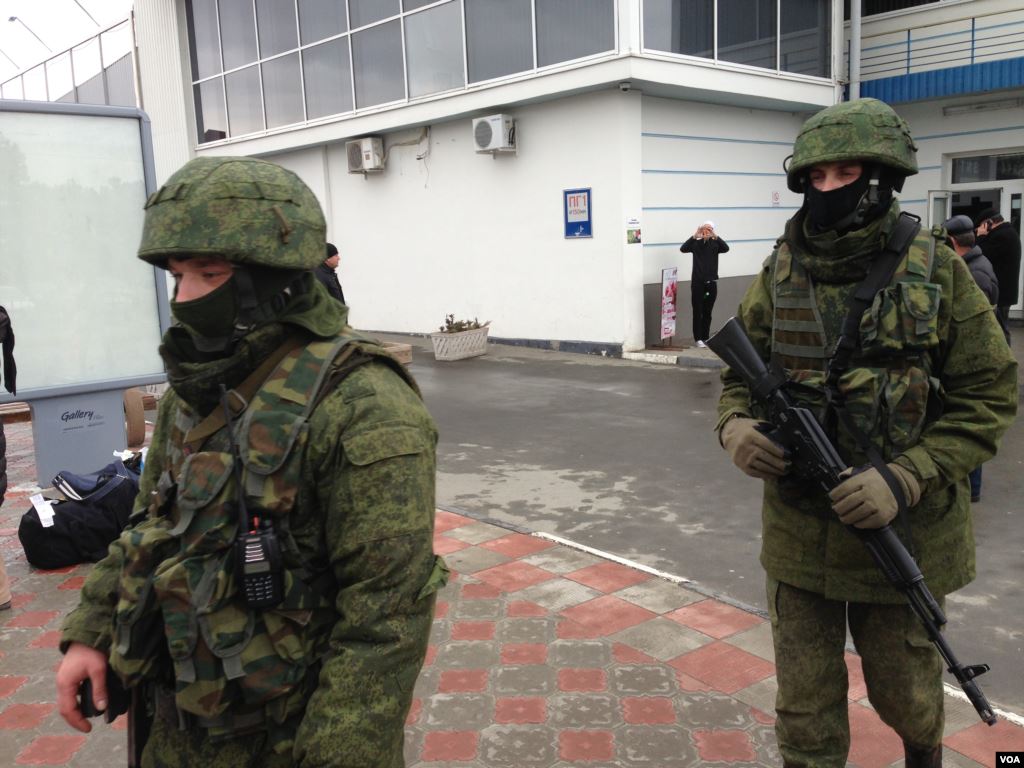 Armed men without insignia (so-called "little green men") at Simferopol Airport, 28 February 2014 (https://gdb.voanews.com/) Armed men without insignia (so-called "little green men") at Simferopol Airport, 28 February 2014 (https://gdb.voanews.com/)
The NATO Energy Security Analysis will provide attention to the growing dependence of NATO’s military activities on the civilian energy infrastructure and the ability of state and non-state adversaries to negatively affect military operations through a hybrid warfare posture. Hybrid warfare could potentially have devastating results to Alliance military effectiveness and impact mission success, highlighting the importance that energy is a critical component across all aspects of the battlespace.
As an actor in international security, NATO has a vital role to play in the nexus between energy security and hybrid warfare. This is particularly important considering the Alliance’s ability to address dependencies and vulnerabilities among its members and act as a platform to build a common understanding of complex operating systems. To identify vulnerabilities, STO Exploratory Team on Energy Security in the Era of Hybrid Warfare (reference SAS-ET-EL), led by the United States had its first physical meeting on 20 and 21 January 2020 at the NATO STO Collaboration Support Office facilities in Neuilly-sur-Seine, France.
The meeting brought together representatives from Canada, Finland, Germany, Poland, Romania, Switzerland, United Kingdom, United States and ENSEC COE to discuss a research project to look at land and sea-based chokepoints, cyber, or non-kinetic activity, market fluidity, the diversity of sources (or lack thereof), and Russian energy dominance. They developed a proposal for a 3-year research project and an associated Programme of Work for decision by NATO STO System Analysis and Studies (SAS) Panel. If a minimum of four NATO nations or organizations support the proposed research and provide resources, the research will commence in fall 2020.
The SAS Panel is NATO STO’s expert analytical advice panel that develops and oversees studies, analysis and information exchange activities that explore how operational capability can best be provided and enhanced through the exploitation of new technologies, new forms of organization or new concepts of operation. It comprises of 43 senior scientific representatives from 23 NATO Nations, 2 Partnerships for Peace Nations, 1 Global Partner and 3 NATO organizations.
Please contact the SAS Panel Office if you need additional information or want to participate in this research effort. Published by SAS |
